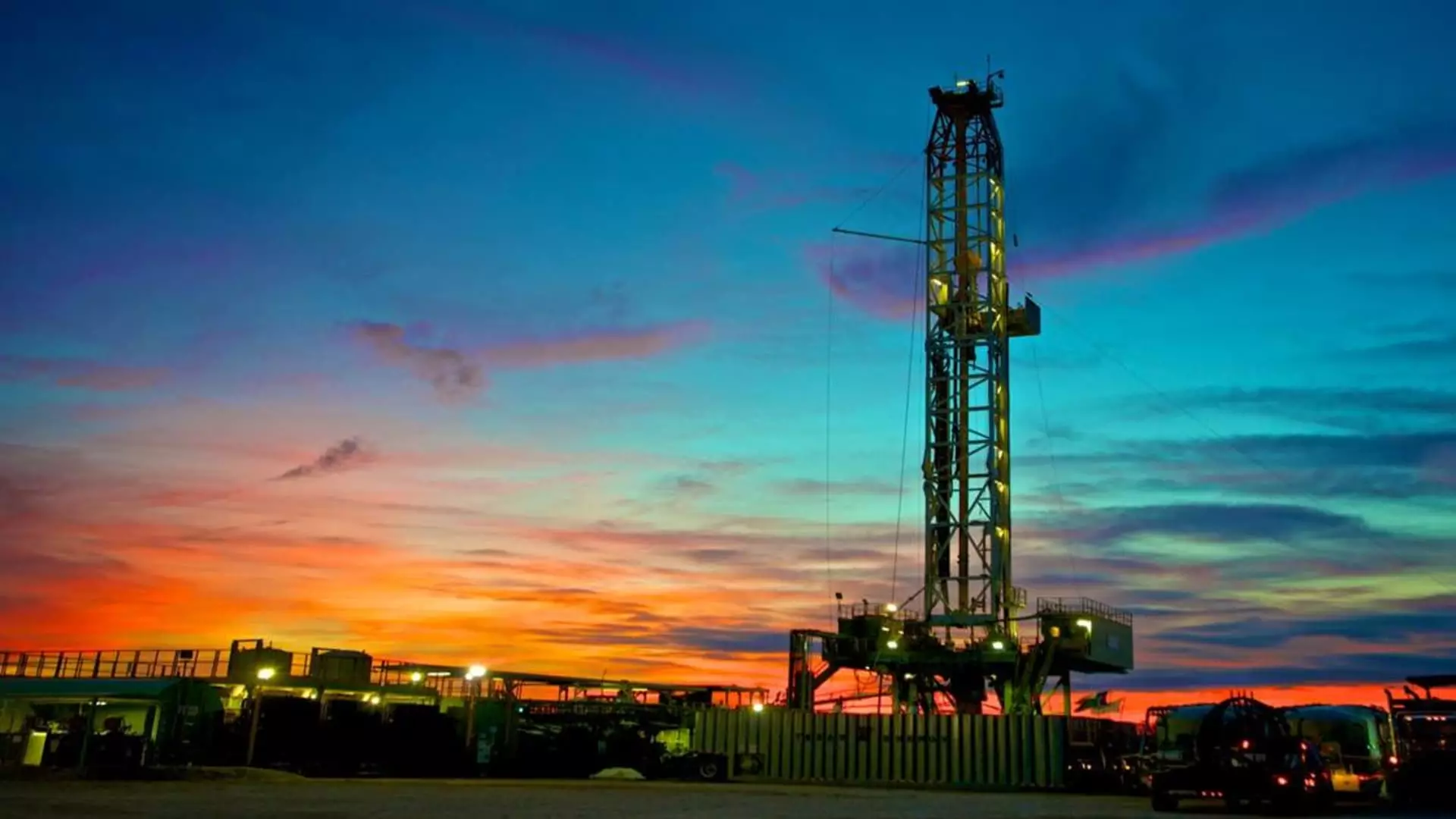In the realm of global energy markets, the 2024 U.S. presidential election looms large with significant implications for America’s energy policy and its dominant position in the industry. Patrick Pouyanne, CEO of TotalEnergies, recently emphasized the importance of maintaining U.S. energy superiority during a discussion at the Adipec oil conference in Abu Dhabi. With the United States currently leading global oil production, the forthcoming election will play a pivotal role in shaping the future trajectory of energy management and policy.
As per data from the Energy Information Administration, the United States accounts for a remarkable 22% of global oil production, dwarfing Saudi Arabia’s 11%. This impressive output has largely been bolstered by advancements in shale extraction technologies, resulting in a dramatic increase in U.S. oil production from 5.1 million barrels per day in 2008 to nearly 13 million barrels per day in 2023. The shale revolution has transformed the U.S. not only into a leading oil producer but also into the world’s largest consumer of this crucial resource. This booming production is primarily facilitated through hydraulic fracturing, commonly known as fracking, which has become a contentious topic among policymakers and environmentalists.
Pouyanne’s observations reflect a growing acknowledgment of the U.S.’s robust position within the energy sector. He noted that approximately 64% of the total U.S. crude oil production stems from shale, suggesting that significant political and economic advantages accompany such a robust energy framework. The upcoming election brings the question of whether these advantages will be leveraged or dismantled, depending on the political camp that emerges victorious.
The ideological divide surrounding energy production is vividly illustrated by the differing stances of major political figures in the U.S. Former President Donald Trump and his Republican allies have been longstanding advocates for deregulating the shale industry, promoting an agenda that encourages expanded drilling operations. In contrast, the Democratic party, traditionally more cautious about fossil fuel extraction, has witnessed a shift in perspective, particularly from Vice President Kamala Harris. In a significant role reversal, she has publicly expressed support for fracking, a reversal from prior opposition. This pivot underscores the complexities and contradictions inherent in modern energy politics, as leaders respond to both economic pressures and environmental concerns.
Political rhetoric often reflects underlying economic imperatives, with Pouyanne noting that energy dominance serves as a competitive advantage for the U.S. He opines that regardless of the electoral outcome, future administrations will likely prioritize the retention of this advantage. This sentiment is crucial as the energy landscape evolves in the face of international developments, particularly amid global energy crises and shifting alliances.
Energy policy is not merely an exercise in national resource management; it also intertwines with geopolitics. The U.S. has seized upon its energy production capabilities to enhance its role on the global stage, particularly in light of Europe’s urgent need to diversify its energy sourcing amid ongoing tensions with Russia. With the U.S. supplying nearly half of Europe’s LNG imports in 2023, this bolstered energy relationship represents a strategic advantage for the U.S. that could further shape its foreign policy and international alliances.
However, this dynamic also calls attention to the need for a balanced approach to energy exploration and environmental protection. Pouyanne remarked on the Biden administration’s restrictive measures towards new drilling opportunities but acknowledged that approval of certain projects, such as those in Alaska, reflects a more nuanced approach. Balancing these competing urges presents a challenge to any future administration.
As America stands at the crossroads of an influential election year, the discourse surrounding energy dominance has never been more critical. The insights from energy leaders like Patrick Pouyanne underscore the importance of strategic leadership that champions not just economic resilience but also environmental stewardship. The path forward must carefully navigate the complex interplay of domestic energy policies, global geopolitics, and the evolving needs of a society increasingly aware of its energy consumption’s environmental footprint. In a world where energy informs nearly every aspect of life and governance, the stakes have never been higher.

